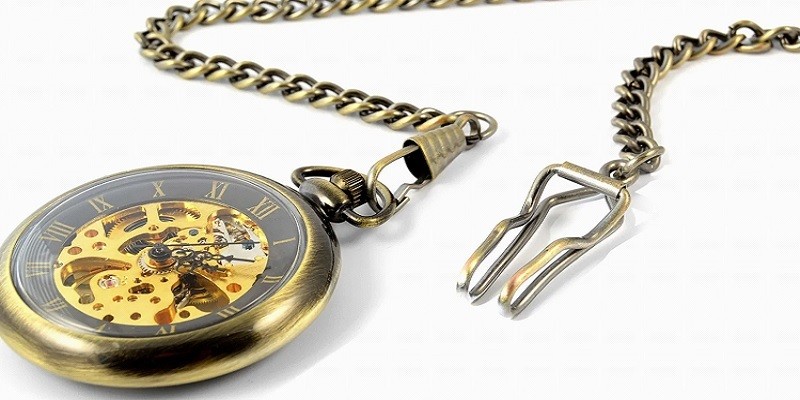Welcome to the world of horology, where precision, artistry, and tradition come together in the form of mechanical watches. These intricate timekeeping devices have been around for centuries, and their charm and appeal remain timeless. However, to ensure that your mechanical watch continues to function flawlessly, it requires regular care and maintenance.
In this guide, we will cover everything you need to know about maintaining your mechanical watch. From cleaning and lubrication to troubleshooting and adjustments, we have you covered. So, let’s dive into the fascinating world of A Complete Guide To Mechanical Watch Maintenance.
The Anatomy of a Mechanical Watch
Before we delve into the maintenance procedures, it’s essential to understand the various components that make up a mechanical watch. This knowledge will help you better appreciate the intricacies involved in its maintenance.
The Movement
The heart of any mechanical watch is its movement. Visit here to watch movements for sale. This intricate assembly of gears, springs, and levers is responsible for keeping time accurately. Understanding the movement is crucial for proper maintenance.
The Case and Crystal
The case houses the movement and protects it from external elements. The crystal, typically made of glass or sapphire, covers the dial and provides visibility.
The Dial and Hands
The dial displays the time, while the hands indicate hours, minutes, and sometimes seconds. The design of the dial and hands varies from one watch to another, adding to the watch’s uniqueness.
The Crown
The crown is used for setting the time and winding the watch. It is a delicate component that requires careful handling.
Basic Maintenance
Now that we’ve covered the basics let’s move on to the essential maintenance tasks every mechanical watch owner should know.
Cleaning Your Watch
Regular cleaning is the first step in maintaining your watch’s appearance and functionality. To clean your watch, follow these steps:
- Prepare a Cleaning Solution: Mix lukewarm water with a mild soap.
- Dampen a Cloth: Dip a soft, lint-free cloth into the soapy water and wring it out thoroughly.
- Wipe the Watch: Gently wipe the case, crystal, and bracelet (if applicable) with the damp cloth.
- Dry Thoroughly: Use a dry, clean cloth to remove any remaining moisture.
- Cleaning the Strap: If your watch has a leather strap, avoid getting it wet. Use a separate damp cloth to clean the strap, and then let it air dry.
Winding Your Watch
Mechanical watches require regular winding to keep running. Here’s how to do it correctly:
- Unscrew the Crown: Carefully unscrew the crown (if it’s a screw-down crown) to its neutral position.
- Wind the Watch: Turn the crown clockwise for about 30 rotations to fully wind the mainspring.
- Set the Time: Pull the crown to the time-setting position and adjust the time.
- Secure the Crown: Push and screw the crown back to its original position.
Keeping Your Watch Running
If you don’t wear your mechanical watch every day, consider using a watch winder to keep it running. A watch winder mimics the motion of wearing the watch and prevents the lubricants from drying out.
Advanced Maintenance
For more advanced maintenance, it’s best to consult a professional watchmaker or a certified service center. However, here are some insights into the complex world of watch servicing:
Lubrication
Proper lubrication is crucial for a watch’s long-term health. Over time, the lubricants in the movement break down, affecting accuracy. A watchmaker will disassemble the movement, clean it, and apply fresh lubricants.
Regulation
Regulating a watch involves adjusting the balance wheel’s speed to ensure accurate timekeeping. This delicate task requires specialized tools and expertise.
Water Resistance
If your watch is water-resistant, periodic checks and pressure tests are essential to maintain its integrity. Water damage can be catastrophic for a mechanical watch.
FAQs
Can I clean my watch with regular household cleaners?
It’s best to avoid household cleaners, as they may contain chemicals that can harm the watch’s finish. Stick to mild soap and water for cleaning.
How often should I have my mechanical watch serviced?
Typically, a mechanical watch should be serviced every 3-5 years, but it may vary based on the manufacturer’s recommendations and your watch’s usage.
Can I wear my mechanical watch while swimming?
Only if it’s explicitly labeled as water-resistant and designed for swimming. Otherwise, avoid exposing it to water.
Why does my watch lose or gain time?
This can happen due to various factors, including magnetism, shock, or an unbalanced balance wheel. A watchmaker can diagnose and correct the issue.
Is it okay to wind my watch every day?
Yes, daily winding is fine, but be gentle with the crown and avoid over-winding.
How can I prevent scratches on the crystal?
Avoid contact with abrasive surfaces, and consider using a crystal protector or sapphire crystal, which is more scratch-resistant.
Conclusion
Maintaining a mechanical watch is a labor of love, and it’s worth the effort to preserve these timeless pieces of craftsmanship. By following the tips and guidelines in this guide, you can ensure that your mechanical watch remains a faithful companion for years to come.
Remember that while basic maintenance can be done at home, more intricate tasks require the expertise of a professional watchmaker. Treat your mechanical watch with care and respect, and it will reward you with a lifetime of accurate timekeeping and elegance.
Now, go ahead and give your mechanical watch the attention it deserves, and enjoy the exquisite craftsmanship on your wrist every day.



